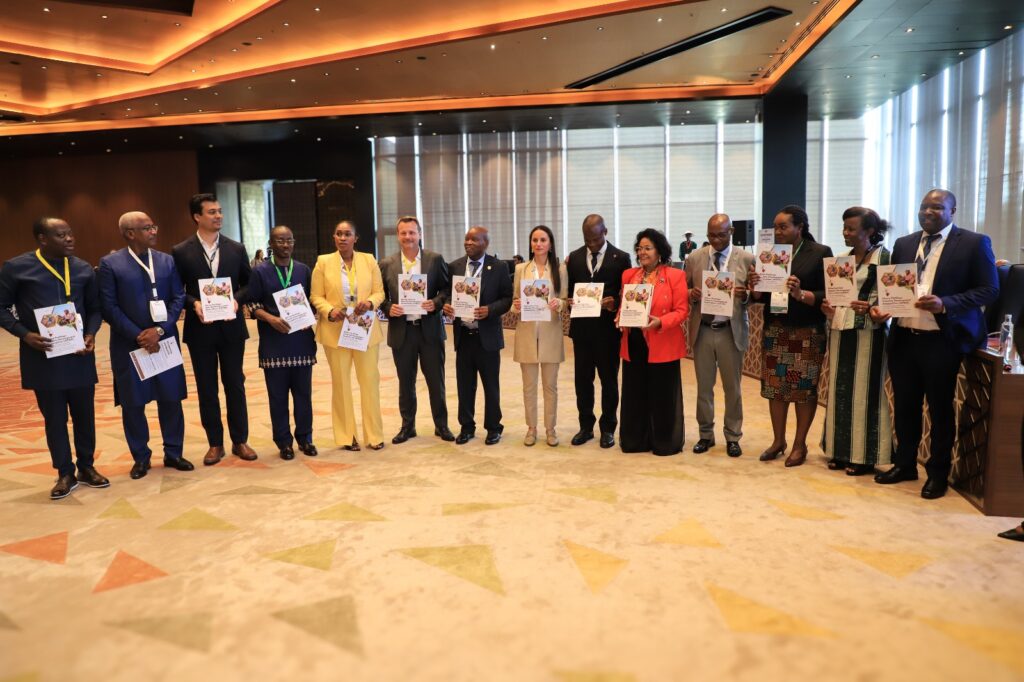
By Ken KOUTCHAKPO
Africa is taking a bold step to secure its agricultural future!
On 1 September, the Africa Fertiliser Industry Development Association was officially launched during a special event on “Advancing the Momentum of the Implementation of the Africa Fertiliser and Soil Health Plan”, held on the margins of the Africa Food Systems Forum 2025.
The event was hosted by the African Union Development Agency-NEPAD (AUDA-NEPAD), the African Union Commission (AUC), Alliance for a Green Revolution in Africa (AGRA), Forum for Agricultural Research in Africa (FARA), and the Coalition of Implementors for Fertiliser and Soil Health (CIFSH).
The Association aims to unite Africa’s fertiliser sector, strengthening collaboration, advocacy, and investment across the continent. For smallholder farmers, who make up the backbone of Africa’s agriculture, this is a major milestone toward better access to quality fertilisers and sustainable soil management.
Why Soil Health Matters
Healthy soils are the foundation of Africa’s food security.
More than 60 per cent of Africans depend on agriculture for their livelihoods, yet many farmers face declining soil fertility. Restoring soils and ensuring access to affordable fertilisers are key to boosting productivity, adapting to climate change, and feeding a rapidly growing population.
A Continental Push for Action
H.E. Moses Vilakati, Commissioner for Agriculture, Rural Development, Blue Economy, and Sustainable Environment at the AUC, emphasised the urgency of tackling soil health challenges. Since taking office in March 2025, he has prioritised eight key areas to implement the Nairobi and Kampala Declarations.
“Our priorities include resuscitating the African Centre for Fertiliser Development, establishing Regional Fertiliser Blending Facilities, and advancing Soil Mapping to enable context-specific, evidence-based decision-making,” he said.
His department has rolled out a 100-day plan that sets the stage for long-term action over the next four years.
The event highlighted the power of multi-stakeholder partnerships in transforming agriculture. Governments, the private sector, youth, women, and technical experts all play critical roles in improving soil health. Inclusive participation ensures that vulnerable groups gain equitable access to resources, training, and decision-making roles—an essential element of Africa’s agricultural transformation.
Driving the Action Plan
AUDA-NEPAD CEO, Nardos Bekele-Thomas, spoke on the importance of coordinated continental action.

“The implementation of the 10-year Action Plan on Fertiliser and Soil Health is now at the top of our agenda. We are domesticating the Nairobi Declaration and helping Regional Economic Communities establish Regional Hubs—with launches already in West and Southern Africa, and progress underway in East and North Africa,” she said.
AUDA-NEPAD is working with multiple development coalitions to ensure the Plan’s success.
On the launch of the Association, the CEO continued to say, “The private sector coalition is represented here by some of its members that I’m advised will launch a new Pan-Africa Fertiliser Association at this event. This is exciting news as it signals an acceleration in the implementation of the Nairobi Declaration. Let me take this opportunity to congratulate the new Association and reaffirm our unwavering commitment to working with them”
Innovation and Partnerships
Dr. Asseta Diallo, Senior Specialist, Soil Health & Integrated Management AGRA, highlighted the link between soil health and resilient food systems.
“Sustainable soil health and equitable access to affordable fertilisers are central to Africa’s agricultural future. AGRA is committed to working with governments, the private sector, farmers, and partners to create enabling environments and innovations that restore soils, boost productivity, and secure a sustainable future for smallholders,” she said.
Larry Umunna, Executive Director of CIFSH, emphasised revitalising institutions and building local ownership.
“Our coalition is focused on reviving the African Centre for Fertiliser Development and promoting the Africa Fertiliser and Soil Health Action Plan at both the country and regional levels. We prioritise capacity building, resource mobilisation, and leveraging research and innovation to improve fertiliser efficiency and build resilient agricultural productivity,” he added.
Participants also showcased innovations in fertiliser formulations, soil testing technologies, digital tools, and modern agronomic practices already making an impact across Africa’s diverse agroecologies. The private sector’s indispensable role in delivering affordable, quality fertilisers and ensuring efficient supply chains for smallholder farmers was highlighted.
A Shared Commitment
The event ended with a collective pledge: as Africa works to boost agricultural productivity and resilience against climate change and population growth, the Africa Fertiliser and Soil Health Action Plan and its partners are ready to deliver science-driven, inclusive solutions for a sustainable, food-secure future.











